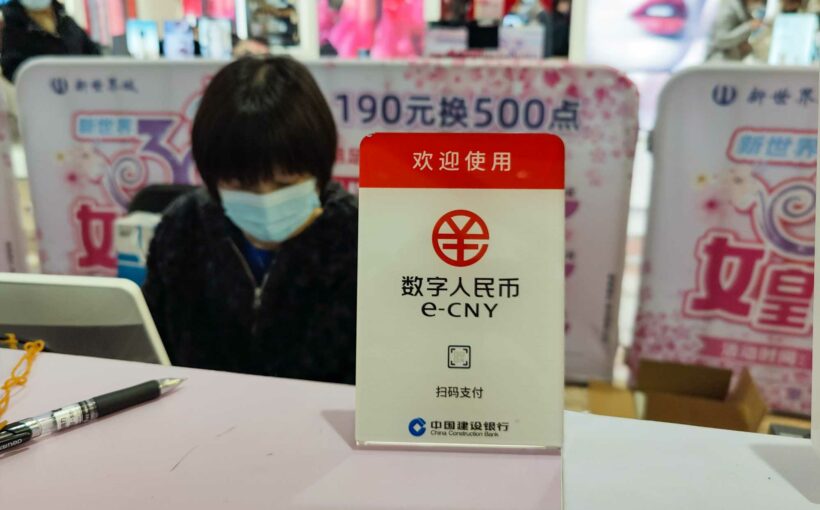- Mobile pay has grown rapidly in the last several years to become the dominant form of payment in China.
- However, the two primary mobile pay apps — operated by Tencent and Alibaba, respectively — typically require a connection with a domestic bank account, preventing foreigner travelers from using the apps easily.
- "Foreign residents temporarily traveling in China can open an e-CNY wallet to meet daily payment needs without opening a domestic bank account," the People's Bank of China said in a paper released Friday.
BEIJING — Foreign travelers to China will be able to use the government-developed digital yuan without a local bank account, the country's central bank said in a paper published Friday.
Mobile pay has grown rapidly in the last several years to become the dominant form of payment in China. Merchants often prefer not to take cash, while credit cards never took off in China the same way they did in the U.S.
However, the two primary mobile pay apps — operated by Tencent and Alibaba, respectively — typically require a connection with a domestic bank account, preventing foreigner travelers from using the apps easily.
It was not immediately clear when the bankless digital yuan feature would be available. CNBC confirmed, however, that a foreign reporter was already able to access the digital yuan via a domestic bank account.
The People's Bank of China has been working on developing a digital version of the yuan, known as e-CNY, since 2014. On Friday, the central bank released a paper — in English and Chinese — on the research progress.
"Foreign residents temporarily traveling in China can open an e-CNY wallet to meet daily payment needs without opening a domestic bank account," the paper said.
Read more about China from CNBC Pro
Chinese tech stocks face other risks on top of tighter regulation, says portfolio manager
Cathie Wood explains her strategy on Chinese stocks in light of the crackdown
Dan Niles says he’s now tempted to buy Chinese tech stocks – here are 2 of his favorites
The central bank claimed the e-CNY system "collects less transaction information than traditional electronic payment" and that internally, the PBoC keeps information related to the digital yuan separate from other departments.
As of the end of June, following about a year of e-CNY tests across the country, more than 20.87 million personal wallets and more than 3.51 million corporate wallets have been opened, with transaction value of about 34.5 billion yuan ($5.39 billion), the paper said.
Foreigners have generally not be able to participate in state-organized digital yuan handouts or other tests since they were limited to native residents of mainland China, Hong Kong or Macao.
Source: Read Full Article
